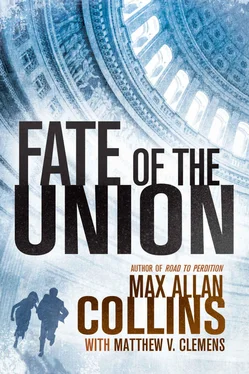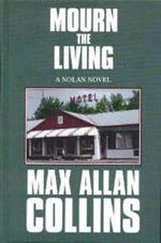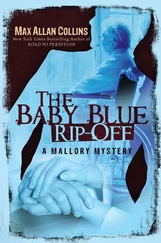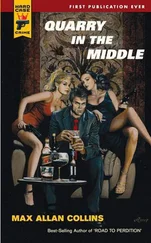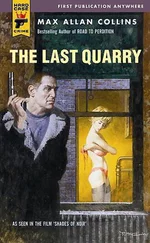Ivanek asked, “Brain cancer maybe?”
“Much as I’d like an easy explanation,” Miggie said, “for a former cop turning political assassin? I can’t help you. Not brain cancer — appendix.”
“That’s a new one,” Hardesy said.
“Not new, just rare. Occurs in about one half of one percent of those diagnosed. But it’s as good at killing you as any other cancer.”
Reeder was studying the image on the monitor.
Rogers said to him, “What?”
No response.
Then finally he turned to her and said, “Two things.”
“Start with number one.”
“You’re a good guy,” Reeder said, looking up at Stanton’s smiling image. “You have a good job. Okay, then you get divorced, which is a possibility in any marriage, but higher odds in law enforcement.”
“We’re still on number one?”
“Still on number one. You get dealt the cancer card. Sucks. Tragic as hell, and maybe enough to unhinge you some. But why does it make a ‘good man’ want to travel from Ohio to DC to shoot Adam Benjamin? Which brings us to number two.”
Rogers squinted at him. “Does it?”
“Ohio is Adam Benjamin’s home state. More than that, it’s where our unpretentious billionaire still lives. And if Benjamin has acquired any under-the-radar enemies, what better place than Ohio to find them? Also, an Ohio enemy might hire somebody from around those parts to do this thing.”
Rogers said, “Murder for hire?”
Reeder didn’t answer, instead saying to Miggie, “Did you check Stanton’s financials yet?”
Miggie nodded. “At first look anyway, nothing special. Checking account with about two hundred bucks in it, savings account with a couple of grand, and an IRA that hasn’t seen a deposit since our ex-trooper went on disability.”
Reeder said, “Keep digging to see if he was sending hate mail to Benjamin, or spouting off around town about the man. If not, then maybe it’s just a case of somebody local hiring somebody local.”
Ivanek said, “If so, where’s the big money a job like this pays? No way this guy breaks that bad and trades everything in, including his life, for a few thousand bucks.”
“He was dying,” Reeder said. “The money wasn’t for him, and it’ll not likely be found in any domestic bank account. Safety deposit box, maybe.”
A sad smile on her lovely face, Nichols said, “The money’s for his boys.”
“My bet,” Reeder agreed. “So we need to look at the ex-wife’s financials.”
Hardesy laughed. “Thank you, Joe.”
“What for?”
“Saving President Bennett’s ass. Without that beefed-up Patriot Act of his, we’d be weeks trying to get warrants for this shit.”
“You’re welcome,” Reeder said.
Miggie’s fingers danced. “Be a minute,” he said, barely audible.
They waited.
Then: “Money’s not with the ex-wife, at least not anywhere I can touch. No trust fund for the kids that I can find. Mom’s remarried, new husband makes a decent living. Nothing to write home about, but decent.”
Rogers’s cell vibrated. Caller ID read: WADE. She took the call.
“Boss,” Wade said, “it’s Clusterfuck City here. Gonna take days, even weeks, to interview everyone. A crime lab team of ours is collecting evidence. We don’t even know what became of the intended target.”
She said, “Sorry, I thought you knew. He’s at the Holiday Inn Express in Falls Church.”
“Adam Benjamin? Holiday Inn Express?”
“You better talk to Joe.”
She handed her phone to Reeder, who filled Wade in on the whereabouts of Benjamin, Frank Elmore, and their so-called security staff. Then he handed the cell back to her.
Rogers told Wade, “I understand you and Bohannon will be tied up with this awhile.”
“We feel like we’re letting you down in the middle of something big.”
“You aren’t. The assassination attempt appears to tie in with our double-taps.” She filled him in on that score.
When she was off the phone, Miggie said, “I ran facial rec on Stanton against the SIM card photo of our blond, but no match. Anyway, no tattoo, right?”
Reeder said, “No tattoo. So not the guy from the Skyway Farer video, either. Anything yet on our black cube or that anonymous building?”
“Nothing on the black cube, but maybe something on the building.”
Rogers said, “Maybe?”
“‘Maybe’ because, weirdly enough, I’ve got two buildings that match the photo Bryson took.”
Reeder said, “Seems like a list we could run through easy enough.”
“Not from here,” the computer guru said, “although they’re both on the same property in an industrial park... on the outskirts of Charlottesville.”
Rogers said to Reeder, “What the hell was your friend Chris doing in Charlottesville?”
“One way to find out.”
She smirked at him. “What, drive to Charlottesville to look at two buildings in the middle of the night?”
“Or,” Reeder said, “we can wait till morning when the media platoon is an army, who can clearly see that it’s us.”
She thought about it.
“Road trip?” she asked.
“Road trip,” he said.
“Wars are. . often the products of conflicting intentions of decent men who have lost the patience to negotiate.”
Vance Hartke, Senator from Indiana, 1959–1977. Section 5, Lot 7043-A, Arlington National Cemetery.
Joe Reeder had never harbored any sexist notions about women drivers, but tonight he might have asked Rogers to drive in any case.
The old shoulder wound from the bullet he’d taken for Bennett was really acting up. Earlier, when he’d tackled Adam Benjamin, getting him out of harm’s way, Reeder had landed hard on that shoulder. He’d already taken a double dose of Patti’s over-the-counter naproxen.
Anyway, she had a heavier foot than he did, and once the media was no longer an issue, the flashers had come on and she had gone for it.
They were in a Bureau car from the motor pool, since Reeder’s Prius was still back at the Constitution Hall parking lot. The unmarked gray Ford Fusion was anonymous enough — looking that the camped-out media paid little or no heed when it had emerged from the underground garage.
As they headed south on snow-cleared I-95, Reeder adjusted his position in the passenger seat, trying to find a spot his shoulder liked. He hadn’t said anything to Rogers and felt sure she hadn’t noticed.
“How’s the shoulder?” she asked.
“Like new.”
“Like hell.”
The woman didn’t miss much. It pleased but also mildly annoyed him that she’d picked up so much from him. Not that she hadn’t come equipped with formidable skills from the start.
“Too bad I’m driving,” she said.
“Why’s that?”
“It’d make a great drinking game, the way you’ve moved that seat belt around since we left.”
“I spy with my little eye,” Reeder said, “a big pain in the ass.”
She grinned at the road, taking one hand from the wheel to flip him off in the dashboard glow.
“So that was the first time for you,” he said, after a while. “Taking a life.”
She nodded.
“How are you doing?”
“Fine. If I could skip the damn counseling, I would.”
“Don’t.”
She glanced at him. “Oh?”
“It’s going to hit you. Maybe when you try to sleep next, maybe in a month or two, when your guard’s down.”
“Joe, really. I don’t relish killing that man, but the circumstances made it necessary.”
“Different issue. That shooting board would clear you, even without the Director nudging them. All I’m saying is, don’t blow off the counseling. And when this does hit, don’t think less of yourself. Nothing to do with mental toughness.”
Читать дальше
